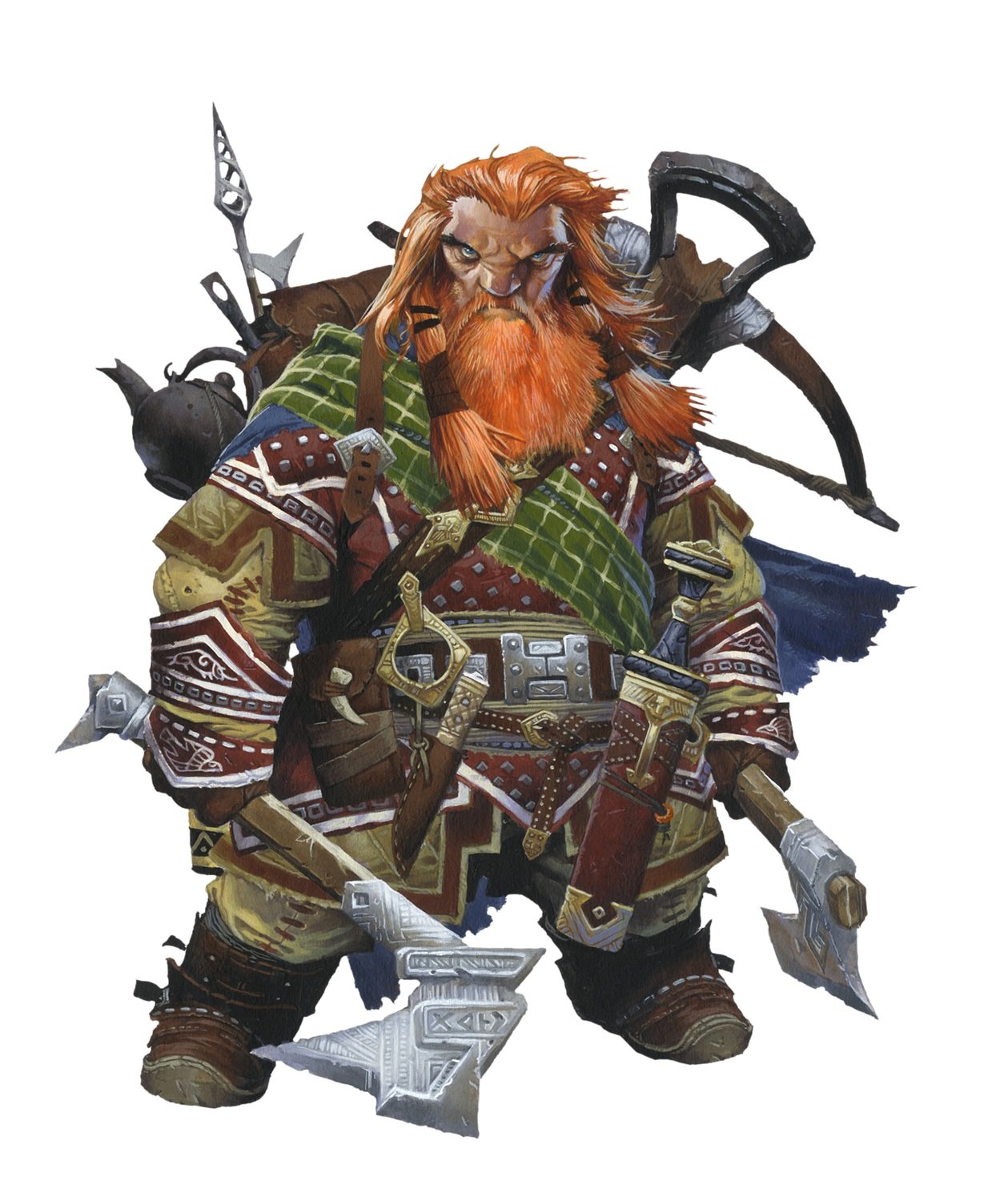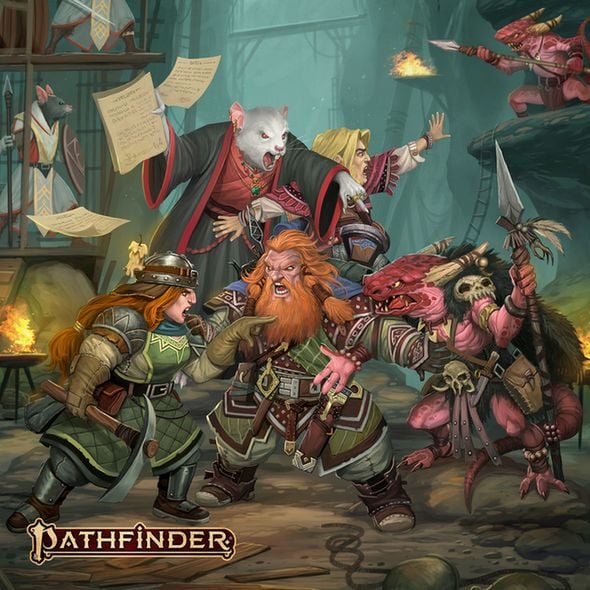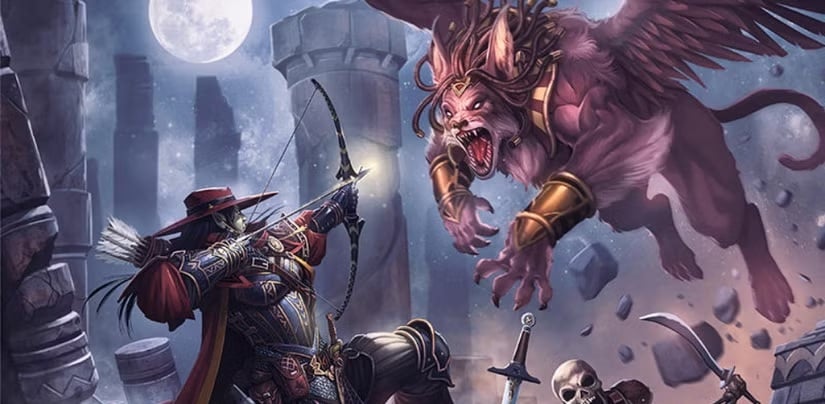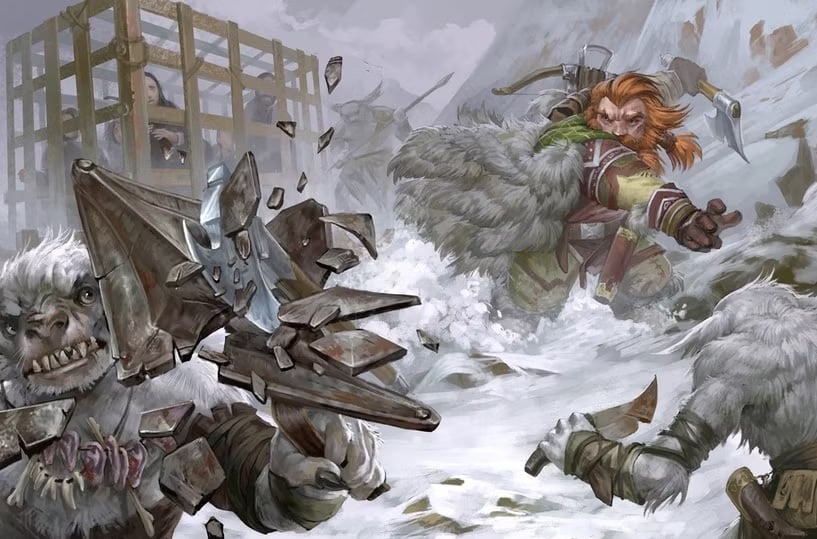Pathfinder Guide: How to Play a Ranger
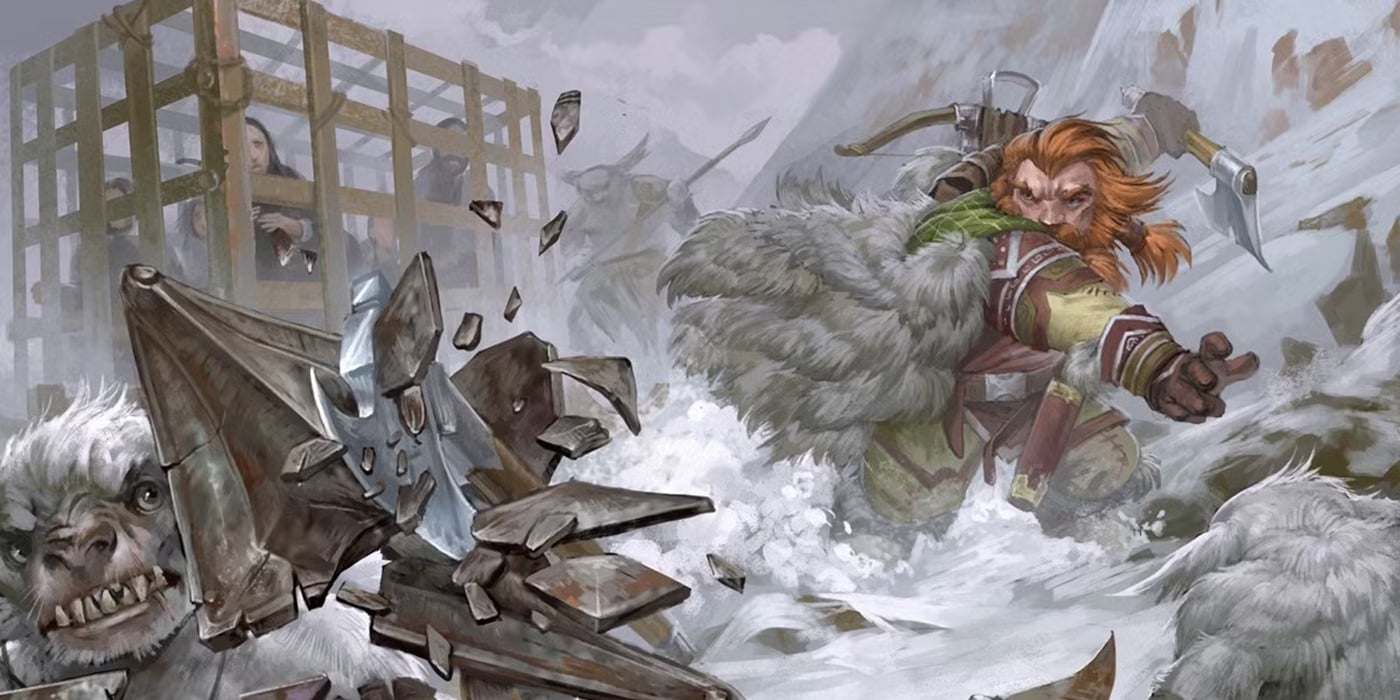
If you want to play a character who can fight, sneak, cast spells, and gets an in-game pet, the Pathfinder Ranger is the ultimate pick.
The Pathfinder Ranger is the class for adventurers who want to live off of the land and stay off of the grid. They may believe that a civilization of people is too taxing on the soul and want to live in the woods, but still be protected from the wild animals. Or they could see nature as something that needs to be protected from civilization, the Ranger is most comfortable experiencing city life from outside.
Jump to…
The Pathfinder Ranger Basics
Rangers are a class of Dexterity and Strength. And at character creation, they can get a boost in one of those two attributes. To start, they also have expert level training in Perception as well as in their Fortitude and Reflex saving throws. Rangers start with training in Will, Nature, Survival, Simple weapons, martial weapons, unarmed attacks, light armor, medium armor, unarmored defense, and a number of additional skills equal to their intelligence modifier plus four.
In combat situations, Rangers excel at singling out and focusing in on specific targets before moving on to the next. They are just as likely to get up close with melee combat as they are to keep a distance with a bow. Out of battle, Rangers both respect nature, and love the hunt. They may keep a trained animal companion, or scout ahead of the party for information, a lay of the land, and a better understanding of the environment they’ll be in next.
Also at character creation, all Pathfinder Rangers designate a single creature as their prey. Rangers will search out and focus attacks against that prey. They also get a bonus to perception and survival checks when tracking this prey.
Hunter’s Edge
At first level, each Pathfinder Ranger’s chooses their Hunter’s Edge. Hunter’s Edge represents the focus of their training. In practical terms, each Hunter’s Edge gives the character a different in-game boosts and benefits to use in their adventures.
Flurry: Rangers that chose this edge have trained to unleash a flurry of blows on their prey. They have a reduced Multiple Attack Penalty, allowing them to more easily make multiple attacks per turn.
Outwit: When a ranger takes the outwit edge they are more easily able to outsmart and outwit their prey. Players gain plus one advantage to their AC when attacked by their prey and plus two in Deception, Intimidation, Stealth and Recall Knowledge checks when used against or about their pretty.
Precision: Rangers with this edge have trained specifically to aim for their preys weaknesses. In the first hit of a round on their prey they deal an extra 1d8 damage, which increases at 11th and 19th levels.
Warden Spells
Because of their relationship with the natural world, Pathfinder Rangers have access to Warden Spells. These are a primal type of focus spell and abide by focus spell rules. These spells are automatically heightened to half of their level rounded up, and taking additional Warden feats can provide access for more warden focus spells and increase the size of their focus pool.
Multiclassing a Pathfinder Ranger
An adventurer of another class may study hunting, tracking, survival, and the wilderness and multiclass as a Ranger. This option is often of particular interest to someone looking to become a skilled and dedicated archer. But anyone may wish to become a master of the wilderness or buff their scouting and range skills.
Multiclassing a Ranger gives players access to the feats Ranger Dedication, Basic and Advanced Hunter’s Trick, Ranger Resiliency, and Master Spotter.
How to Play a Pathfinder Ranger
Playing as a Pathfinder Ranger can be incredibly fun and rewarding, but it’s class with the potential to have a lot going on. I wouldn’t say that a Ranger will have a ton of plates spinning at any given time, but they do have many plates to choose from.
Rangers have a versatile combat style with potential for both ranged and melee as well as a selection of spells to choose from. Then, they have a number of more support skills such as nature and survival expertise, scouting abilities, and animal companions. They are adventurers who could be sneaking up ahead for intel in the morning, asking animals to retrieve items for them in the afternoon, and taking down a ferocious beast in time to end the session.
You Have the Hunter Edge
Much like Bards, Rangers are a class who tend to have a wide range and well rounded collection of skills. The Rogue may be better at sneaking around, but Rangers are also adept at stealth for scouting ahead, setting tracks, and spying on foes. A Fighter may have more expertise when it comes to weapons and combat, but a Ranger is no slouch in a battle.
When possible, it’s best for a Ranger to focus on their prey of choice in order to get as many bonuses and boons in battle as they can. And for a little extra attack power, duel-wielding melee Rangers can use the Twin Takedown feat to get an extra hit per round – one with each weapon. And of course, animal companions and in-game pets are the dream of every TTRPG player. But the Ranger can use theirs for scouting, attacks, and even to distract their enemies.
Happy adventuring!

